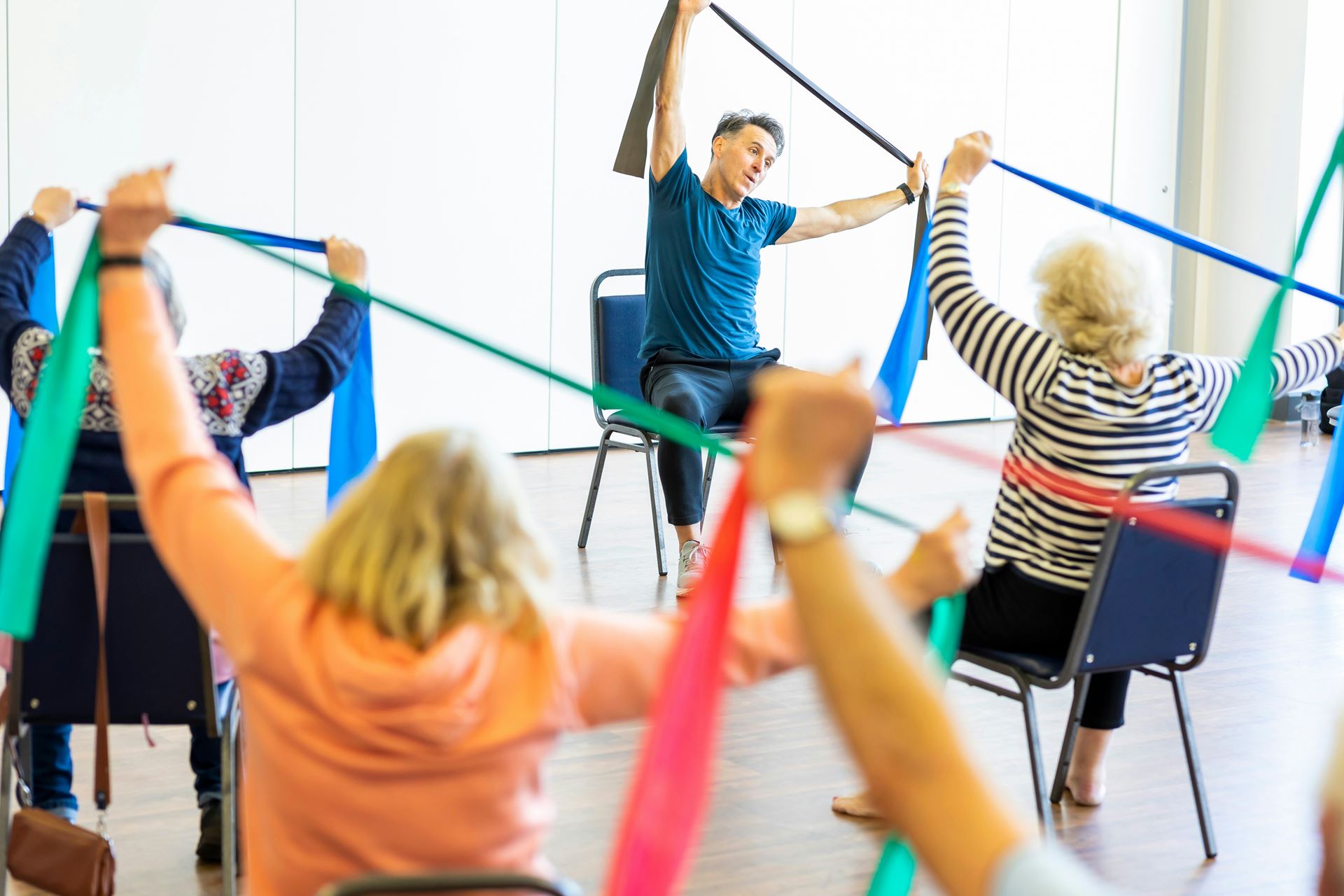Falls Prevention
Prevent a Fall - Keep Safe and Well This Winter
Taking steps to improve strength and balance as you get older can greatly reduce your risk of falling. NHS Greater Manchester says falls are the leading cause of injury amongst older people, they can result in serious health issues such as fractures, head injuries, and even loss of independence.
In Greater Manchester last year, more than 31,000 falls-related calls were made to the North West Ambulance Service (NWAS), with almost half of these occurring during the winter months alone. Each fall carries the potential to change a person's life forever, affecting not only their health but also their emotional well-being and quality of life.
Many falls can be prevented as they are not an inevitable part of ageing. NHS Greater Manchester has the following advice to help you and your loved ones prevent falls, keeping you safe at home and outdoors, and what you can do if a fall occurs.
Regular eye checks
As you get older your eyesight can change. Regular eye tests can help find conditions that might put you more at risk of falling. Eye tests are free for people over 60. Make sure that your eyesight is tested regularly, even if you think it is fine. Make sure you are looking after your glasses and cleaning them regularly and buy some sunglasses that can help to reduce the glare from the winter sun.
Stay Active
Maintaining your overall health is key, so take regular exercise to improve your strength, balance, and coordination. Walking, strength and balance exercises are especially beneficial. There are specific classes happening all over Greater Manchester, check out your council website, your local library or GP practice for information on classes in your area.
Medication side effects
Certain medications can increase the risk of falls so it’s important to talk to your GP and regularly review all your medications. It’s good to understand the potential side effects that could affect your balance or coordination and take steps to minimise them. Never stop taking any prescribed medication without speaking to a GP first.
Keep your home well-lit and clutter free
Take some time, or ask for help, to clear clutter away from floors or stairs as this will give you more room to walk around freely. Move things such as small furniture and pet bowls and get rid of any loose mats or rugs or use rug grips. Make sure you have enough lighting to help you move safely from one place to another, especially on stairways and in hallways. Consider getting a lamp, night light or torch by the bed in case you need to get up during the night.
Be prepared for cold weather
The drop in temperature during the winter means more chance of ice, snow and falling leaves, so it’s important to be extra careful when going outside. Spreading sand or salt on icy surfaces on your driveway, garden paths, and steps can help.
Make sure you are dressed for the cold weather, put on shoes that have a good grip and wear gloves to protect your hands in case you do fall. Ask for support from your family and friends - could they go with you when you leave the house, or help clear your driveway and paths of ice and snow?
Always make sure to have enough food at home, so you don’t have to go out if the weather gets really bad.
What to do if you or someone else falls
-
First check for any pain or injuries before attempting to get up.
-
If you feel unable to get up safely, call for help.
-
If you’re able, roll onto your hands and knees and look for a stable piece of furniture, such as a chair or bed. Hold on to the furniture with both hands to support yourself and, when you feel ready, slowly get up.
-
Sit down and rest for a while before carrying on with your daily activities.

How can Strength and Balance training help?
June Tracey, (85) was in her garden when she tripped over the hose, fell and broke her pelvis. In the last few months she has been regularly attending a strength and balance class in Hale Barns, Trafford.
She said: “I was frightened for a long time of even walking outside because I was scared of falling on the pavement. I really enjoy this class, doing the exercises every week has given me a lot more confidence to get around.
“I would encourage anyone who’s offered a class like this to give it a go. You meet people who are going through the same thing and we support each other. I’m very mindful of potential hazards when I’m in the house and garden now, the hose was coiled behind me and I tripped over it – it was as simple as that.”
Strength and Balance training is available through our Social Prescribing Team. You can contact the team via email or phone:
julie.bentley8@nhs.net or ring Julie on 07713 750 458
Page last reviewed: 28 September 2020
Page created: 28 September 2020
Page created: 28 September 2020